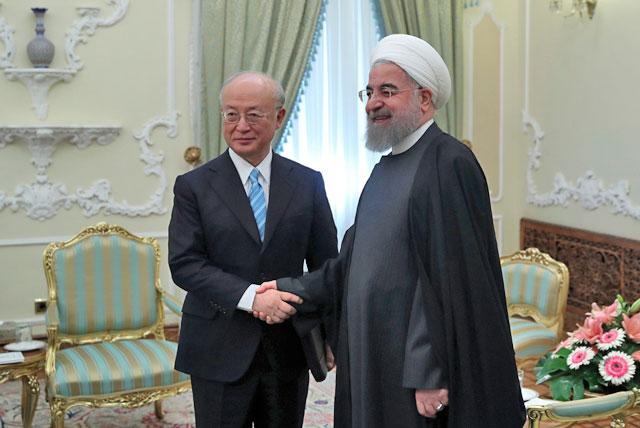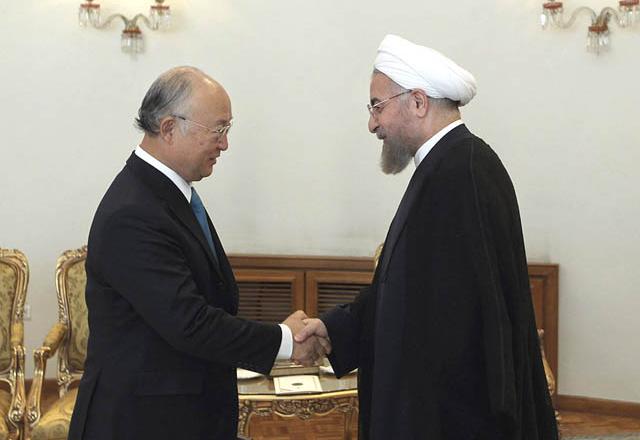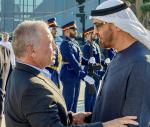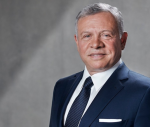You are here
Iran nuclear chief insists on enrichment ahead of talks
By AFP - Jan 11,2015 - Last updated at Jan 11,2015
TEHRAN — Iran's atomic agency chief insisted Sunday on Tehran's demands for increased uranium enrichment, days before the resumption of thorny talks with world powers in Geneva.
Ali Akbar Salehi, a former foreign minister and ex-nuclear negotiator for the Islamic republic, said that within eight years the country would need 12 times more enriched uranium than at present.
Iran's level of uranium enrichment — the process that produces atomic fuel — has been a key stumbling block in reaching a deal with the P5+1 powers (Britain, China, France, Russia, the United States plus Germany) on Tehran's contentious nuclear programme.
"We currently produce 2.5 tonnes but will need 30 tonnes eventually," Salehi, head of the Iranian Atomic Energy Organisation, was quoted as saying by official news agency IRNA.
"They refuse... and ask that we reduce the number of centrifuges [the machines that enrich uranium]," Salehi said.
"We must have that right in eight years... we are ready to do this in stages. They can set the first step but we want to set the last step."
With a comprehensive nuclear deal at stake by a June 30 deadline, the negotiations have stalled on key issues.
Big gaps remain on uranium enrichment and the time it will take to lift extensive international sanctions imposed on Iran as punishment for its nuclear activities.
Following a preliminary agreement in November 2013, two deadlines for a final deal have been missed with talks failing to pin down hard details on what an approved Iranian nuclear programme would look like.
Under the interim deal, Iran's stock of fissile material has been diluted from 20 per cent enriched uranium to 5 per cent in exchange for limited sanctions relief.
This would push back the "breakout capacity" to make an atomic weapon, which Iran denies pursuing.
Salehi also reiterated Iran's demand for an eventual enrichment capacity of 190,000 SWU (separative work units), which was first set out by the country's supreme leader Ayatollah Ali Khamenei last July.
In Geneva, US Secretary of State John Kerry will meet Iranian counterpart Mohammad Javad Zarif on Wednesday, with lower-level P5+1 meetings on January 18.
Salehi also pointed to a third difficulty — the time period the West considers necessary for confidence-building measures to ensure Iran's nuclear programme is peaceful.
"We want this period to be less than 10 years," he said, noting that the P5+1 powers want it to last "between 10 and 20 years".
In a sign that difficulties lie ahead, Khamenei last week used a public speech to voice distrust of the United States in the talks, citing its "arrogance" over the steps to be taken to lift sanctions.
Khamenei, as Iran's top authority, will have the last word on any final agreement.
Related Articles
Top nuclear officials of Iran and the United States joined seven-nation talks Saturday in a move that may help resolve technical disputes standing it the way of a deal meant to curb Tehran's atomic activities in exchange for sanctions relief for the Islamic Republic.
DUBAI — Iran has shown commitment to the deal on its nuclear programme agreed with world powers, the head of the United Nations atomic energ
Iran will reject any restraints on its nuclear operations outside the international rules set by the industry watchdog, President Hassan Rouhani said on Sunday.















